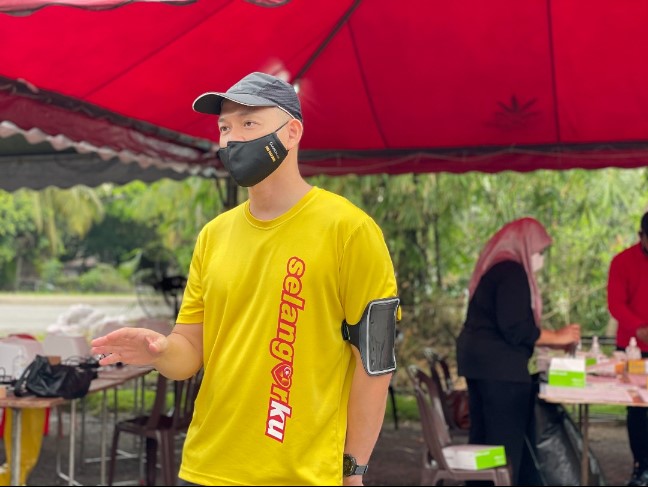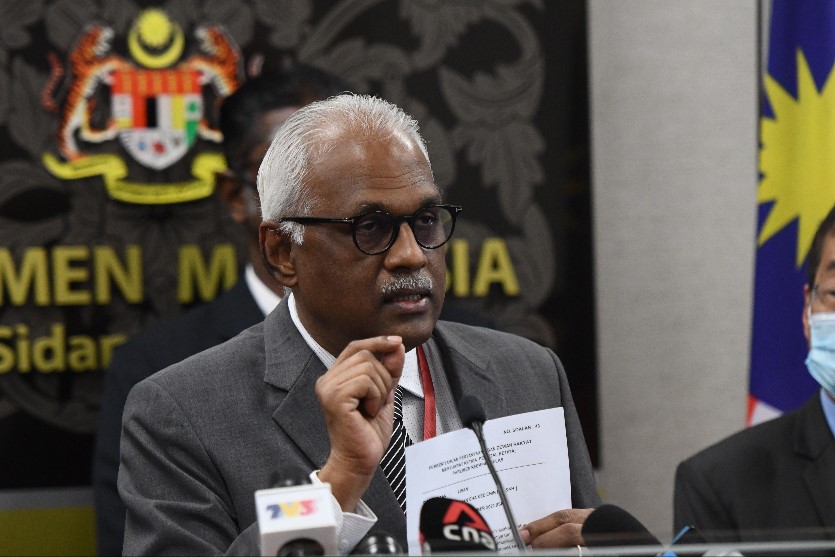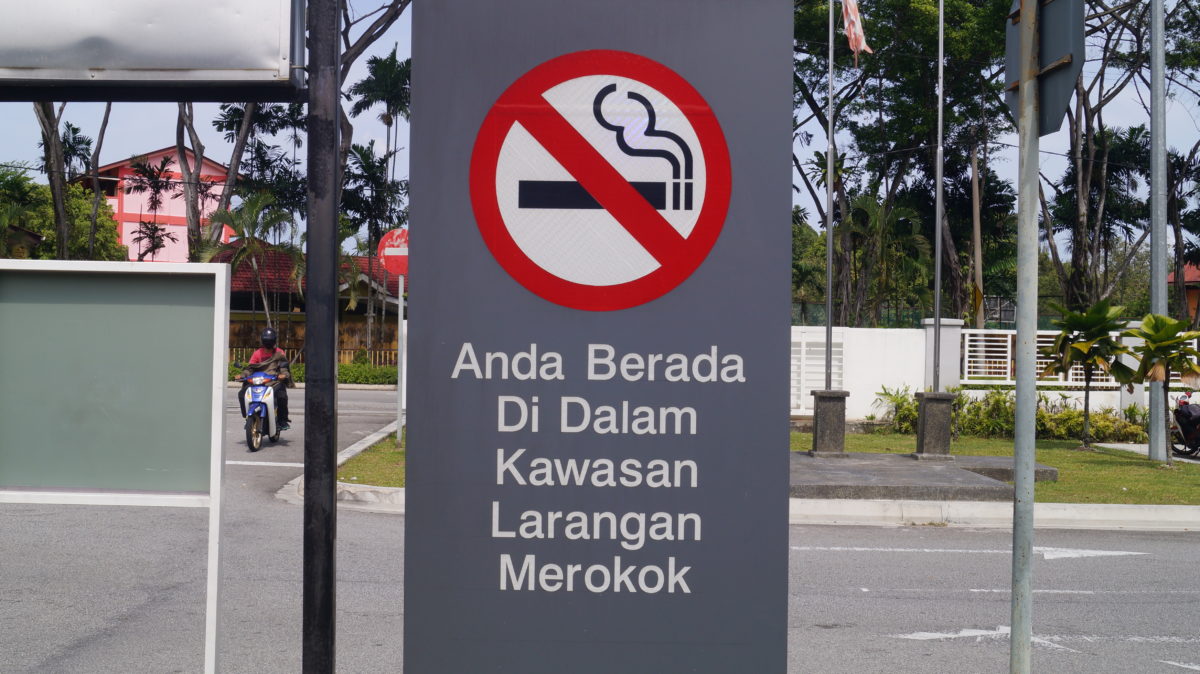KUALA LUMPUR, Feb 9 – Parliamentarians are calling for more details on the government’s plan to prohibit the sale of cigarettes and tobacco, including vape or e-cigarettes and heated tobacco products, to people born after 2005.
The cohort smoking ban policy announced by Health Minister Khairy Jamaluddin at the World Health Organization’s (WHO) executive board meeting in Geneva recently has so far sparked an online public debate over its effective enforcement and the question of free will.
Lembah Pantai MP Fahmi Fadzil said he welcomes the move as the “science cannot be refuted”. However, the PKR communications director is cautious as to whether people would find alternatives to get their nicotine fix.
“Even as it currently stands, illicit cigarettes are available in many places and enforcement is lax. My worry is there will be those who will indirectly and monetarily gain from this,” Fahmi told CodeBlue when contacted recently.
The New Straits Times reported last October that illicit cigarettes comprised 57.9 per cent of the local cigarette market in May 2021, down from 64.1 per cent in December 2020, according to a study by the Confederation of Malaysian Tobacco Manufacturers.
Ong: Put Tobacco Act To Parliament Committee First Before Tabling

Bangi MP Ong Kian Ming, who is also former international trade and industry deputy minister, said the effectiveness of the proposed policy must be properly evaluated given the current prevalence of illicit cigarettes in Malaysia.
“Firstly, I want to state that I am a non-smoker and I do not encourage smoking among any segment of the population, especially for those who have not yet started smoking, regardless of age group.
“Secondly, my position for those who are already smokers is that various options should be available to them to reduce their tobacco consumption including harm reduction strategies which shift these smokers, especially those heavy smokers, to less harmful channels of nicotine consumption, including nicotine replacement therapy (NRT) such as using gums and patches.
“Thirdly, I advocate a holistic approach towards tobacco regulation policy, which takes into account existing conditions in the country, including the high presence of illicit cigarettes which will impact any existing policies to ban the sale of cigarettes to certain groups, including those less than 17 years of age.
“With my above mentioned positions stated, I believe that we need a much more rigorous debate on the proposed measures reported in the CodeBlue article above and in other news reports after the announcement by the Health Minister at the recent WHO executive board meeting,” he said.
Ong noted that he does not consider vape, e-cigarettes, and heated tobacco products as tobacco harm reduction strategies, as current research on these products is “inconclusive” to him.
“I strongly feel that these products must be properly regulated (including possibly under the proposed Act) so that younger people do not start using these products irresponsibly by thinking that the harmful health effects of these products are negligible or that these products are more acceptable or ‘cooler’ than conventional cigarettes,” Ong said.
The Ministry of Health (MOH) said its proposed smoking ban for everyone born after 2005 does not only cover cigarettes and tobacco products, but also vape, e-cigarettes, and heated tobacco products.
Ong, who is a DAP central executive committee member, recommended that the proposed law be discussed within the context of the Parliamentary Select Committee (PSC) on Health, Science and Innovation first before being tabled in Parliament.
Ong listed five questions he would like answered with regards to the proposed Tobacco and Smoking Control Act, namely:
- What are the current policies and programmes for harm reduction and to help smokers quit smoking in Malaysia and how effective have they been?
- What is the approach which the MOH has taken towards the prevalence of illicit cigarettes in the country which sell at half or one-third the cost of the duty paid cigarettes or does MOH see this as a matter purely under the jurisdiction of Customs or the Ministry of Finance (MOF)?
- What are the current enforcement mechanisms towards preventing the sale of cigarettes to minors and how effective have they been?
- How will the MOH put in place policies to prevent those born in 2005 and above and who will turn 18 and above in due course from buying cigarettes when they are adults? Are there enforcement mechanisms in place which prevent adults from buying cigarettes?
- What will be the impact of such policies on the possible shift to even more consumption of illicit cigarettes and perhaps a reduction in the usage of less harmful products, including those in the NRT category?
When CodeBlue asked Khairy at a press conference last Thursday about how he planned to enforce the generation smoking ban, the health minister acknowledged the high prevalence of illicit cigarettes, but simply said there were “many methods” to control the sale of tobacco to those born after 2005.
Nurul Izzah: Don’t Use Enforcement As Excuse To Oppose Ban

Permatang Pauh MP Nurul Izzah Anwar is more optimistic about the proposed policy, saying growing awareness on the powerful, addictive nature of tobacco – not just amongst the public, but also politicians across the aisle – provides an opportunity for a generational tobacco endgame.
“With growing awareness on the dangers of smoking, concerns about older clients buying cigarettes for the banned audience seem more like an outlier, especially as most smokers want to quit themselves,” Nurul Izzah said.
However, the PKR lawmaker said a generational ban – similar to the one proposed in New Zealand – must be accompanied by other tobacco reduction measures, including smoking cessation interventions in order for it to be truly effective.
Smoking cessation interventions means promoting NRTs, and not encouraging the use of vapes, e-cigarettes, or heated tobacco products, Nurul Izzah said.
“From my understanding, there isn’t a robust evidence base to recommend these items as smoking cessation interventions.
“In fact, some published papers pointed out the presence of harmful compounds in e-liquids such as Volatile Organic compounds (VOCs), Polycyclic Aromatic Hydrocarbons (PAHs), heavy metals and tobacco alkaloids,” she said. “There is also concern that vaping may lead to increased tobacco use.”
A study published in the medical journal Pediatrics suggests that adolescents who vape are six times more likely to regularly smoke tobacco in young adulthood.
Another study led by researchers at Universiti Kebangsaan Malaysia looking into e-cigarette use in six universities in the Klang Valley also revealed that more than half of students were electronic cigarette users. What was more worrying, Nurul Izzah said, was that the majority of users were from families from bottom 40 per cent income (B40) backgrounds.
“Clearly this situation presents a quandary for politicians and governments since vaping policies are seen as promoting one goal at the expense of another.
“However, we must continue to be led by evidence. The long-term health effects of inhaling liquid flavoring chemicals and nicotine veer in the dangerous territory of the unknown,” Nurul Izzah said.
On whether the generational smoking ban will feed the black market, Nurul Izzah said evidence shows that illegal cigarette trade and smuggling are mostly fuelled by corruption.
“For example, a study conducted by researchers from Universiti Putra Malaysia and Tunku Abdul Rahman University College in 2020 has proven that the illegal cigarette sales in Malaysia is partly due to the issue of corruption, rather than the effect of taxes.
“Hence, the role of the Customs Department in clamping down on illicit cigarettes remains crucial. The legislation as part of the overall plan should be utilised as a key tool and build momentum to fight the existing black market,” Nurul Izzah said.
“It truly requires a whole-of-society and a cross-agency awareness approach. Indeed, enforcement is an issue but it should be improved and addressed, not used as an excuse to oppose the generational ban that will help prevent the younger generation from taking up a lifelong addiction,” she added.
When asked if she would support the law when it’s tabled in Parliament, Nurul Izzah said: “Yes Insya Allah (God willing). We all have a stake in this.”
Charles Santiago: Conduct Cost-Benefit Analysis, No To Outright Ban

Klang MP Charles Santiago called for the government to conduct a cost-benefit analysis on the proposed policy to measure both its health and economic impacts.
Charles suggested a “softer” strategy involving plain tobacco packaging instead of a total ban on cigarettes and tobacco products as a way to reduce Malaysia’s smoking rate.
“My view is, I think, if you do plain packaging, that might be a better solution. Studies on plain packaging have shown in other countries – and the WHO recommends it – that it has actually reduced the number of smokers and it is done in a voluntary sense, meaning the government doesn’t impose on people.
“People can still make a choice but the advertisements would be reduced, the exposure, these pictures of women and men on the cover will be reduced, and only the name will appear. So, I think, in other countries it has shown that plain packaging has worked and could be more effective than an outright ban.
“An outright ban can lead to an underground market, which will be more dangerous in the long run,” Charles said.
Charles also pointed to Malaysia’s poor track record in enforcing law, implying that a complete ban on cigarettes and tobacco products would only increase corruption.
The DAP lawmaker further argued that a generational ban will not work when technology continues to offer access to tobacco products.
“We’re in a globalised environment, in a globalised economy. People will bring it in from Singapore, Thailand, and now with Shopee all that, you can make them come to your house. So, what is so generational about this when technology allows you to smoke through a variety of means?
“Lazada is there, Shopee is there, and god knows what else will come out. After this maybe there’ll be a dedicated [platform] only for Malaysian smokers, and they can send it directly to your house. So, I don’t think it (generational ban on cigarettes and tobacco products) really works,” Charles said.
“I mean we have an outright ban on drugs, has it succeeded? And the penalty is worse, you are caught selling so much drugs, you’d be hanged. Has this stopped people from taking drugs or trafficking drugs? No. That’s why this outright ban doesn’t really work,” he added.
It’s unclear if the Tobacco and Smoking Control Bill will get sufficient votes from government MPs, as their previous lack of support forced the postponement of the amendment to the Prevention and Control of Infectious Diseases Act 1988 (Act 342).








